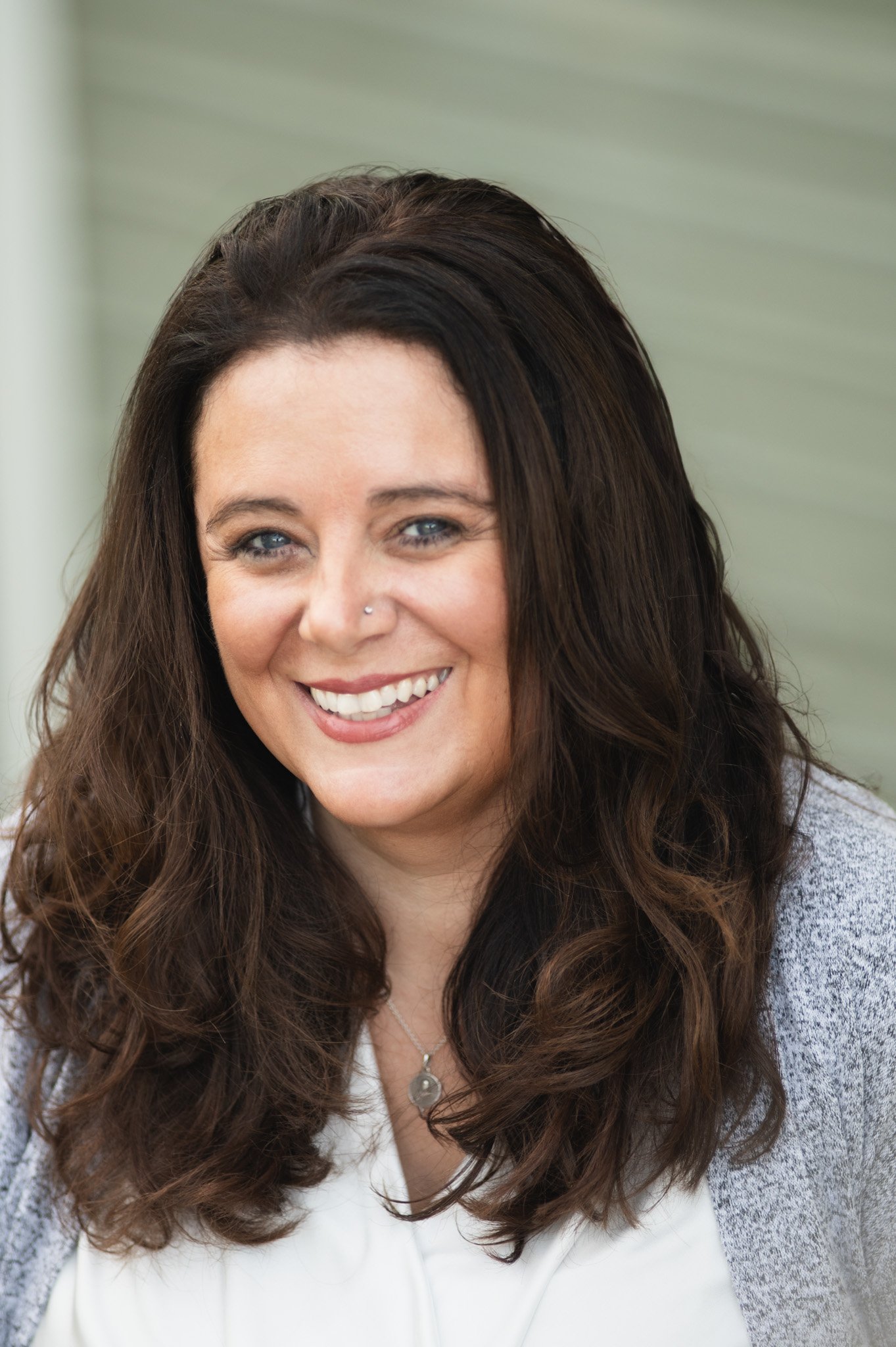
Understanding the language of diversity and inclusion
Last week, I had the perspective-shifting honor of attending the Women in Cloud Summit, and I am confident that by participating in it, it will help me change the world – and I don’t say that lightly. The experience lived up to my expectations and altered my perspective in more ways than one.
For context, I’ve been working in the tech industry for 20+ years. I’ve had the incredible privilege of sitting in the room when executives from some of the world’s largest technology providers asked themselves “what is digital transformation and how will it impact our businesses?” I’ve had a front row seat to watch those companies transform the landscape of not just the tech industry, but every industry they touch.
I’ve witnessed brilliant men and women coming together to identify problems, brainstorm solutions, and implement market-moving changes. Although there were many times that I was the only woman in a conference room reviewing business performance data and developing correction of error plans, I also had the honor of working with extremely professional and progressive-thinking men. I can honestly tell you – in my 20 years in the industry, nobody ever made me feel invisible. On the contrary, the men in the room asked for my input – they wanted to hear my thoughts, my opinions, and my recommendations. I’ve had overwhelmingly positive experiences of always feeling included – even if I was the only woman at the table.

My experience is not your experience
Over the past five years, my company has seen exponential growth, so on one hand, I was too busy growing my own company – recruiting, coaching, and leading my team (that is currently 80% female!) – to feel marginalized. I simply didn’t have the time. So, when the Women in Cloud Summit emerged a few years back, it wasn’t on the top of my list of priorities. That’s not to say that my experience is everyone’s journey, because I heard hours of presentations this week from women in executive positions who still struggle to be heard. But it simply wasn’t my experience, so I just didn’t prioritize the event. (Translation: My privilege clouded my vision.) But this year was different because of the spotlight on civil rights and social justice. Thus with the added benefit of virtual events making it more accessible for my remote team to join, I decided to attend with five female leads from across my company.
As I seek to lead The Odigo Group and navigate the civil rights, socio-economic realities, and political chaos that 2020 exposed, I decided it was necessary to take the time to listen and learn as I try to understand how we can empower all people. I recognized that perhaps it was time to take my position of privilege and use it for the greater good. Although what I learned was nothing new, it felt like a wakeup call at the same time.

Lack of diversity is impactful
The statistics are familiar … we all know women are under-represented in the C-Suite, leadership positions, and on boards of directors. I already knew the stat that a mere 2% of venture capital funding goes to women, and that there are more men named John, Robert, William, or James on advisory boards than there are women altogether. We clearly know WHAT the problem is. And, simple math says the solution is also simple – increase the role women play in business to 50%, equal to our share of the general population. Right? Well … it’s easier said than done. We’re also familiar with the stats about young women not enrolling in STEM-based academics, and women leaving the workforce at 4x the rate of men to care for others during the COVID-19 Pandemic. These numbers are staggering, but let’s talk about what that actually means.
During the Collective Power: Opening Plenary, Bonnie Foley-Wong, Head of Investment Strategy at Equality Fund, shared a simple story that made equality come alive. She explained how airbags were designed by male engineers using crash test dummies designed to the specs of male bodies, and nobody stopped to think, “how might airbags impact pregnant women?” Not because anyone was intentionally oppressing women, mind you. But simply because the male engineers in the room did not consider pregnancy – because it is not their experience. Inequality is not always driven by an intention to oppress. It is more often driven by the simple absence of diverse contributions.
If there had been a woman at that table – especially a woman who had experienced riding in a car while pregnant – the design would have been completely different. We wouldn’t be debating whether it’s safe for pregnant women to ride in the front seat – and we surely wouldn’t be questioning what the greater risk is – the car accident itself or the impact of the airbag on the unborn baby. The design of the technology would have accounted for the variables, and the safety precautions would have been built into the product from the beginning.
The simple absence of women from engineering results in the absence of engineers considering the unique needs of women – who make up a full HALF of the world’s population.

We need diversity. Now!
In my mind, the next logical question is … if we are excluding half of the world’s population from design considerations based on gender, what about all the other marginalized communities – from race to age to education to religion, and everything in between? If the products and solutions we are producing for humanity are so biased toward their creators, and there is not enough diversity in the population of the creators, we will never achieve equality.
This doesn’t stop at the invention of airbags. Every day, we are making advancements in AI and yet engineers of AI are nearly 80% male. EIGHTY PERCENT. AI is going to have impacts on humanity and civilizations that we cannot even begin to fathom. Even in the furthest science-fiction reaches of our imaginations, we do not yet know how AI will influence life as we know it and yet that code is being written today. Right now. As you are reading this blog. If we do not stop what we are doing – right now – to make sure there is equal representation in the field of AI – not just for women, but for all marginalized groups and individuals – then we are missing a life-changing opportunity to shape the future. Our future, our children’s future, and the future of generations yet unknown. This is an emergency of epic proportions.
We do not have any more time to consider diversity and inclusion – in the workplace or in society. It needs to happen now. Every person on this planet has a role to play in making it happen.

The language of diversity is also impactful
I need to pause here to add some thoughts on what inclusion is and what it is not. As passionate as I am about technology, I am not actually a technologist. I am a marketer at heart, and the first rule of marketing is: Know your audience. It’s also the second rule. And, like “Fight Club,” if you don’t follow the first two rules, you are sure to lose.
For context … I’m a white woman leading a team of ~20 individuals in a business that my husband and I co-founded. I’m the daughter of a white man, the sister of white men, the niece of white men, the wife of a white man, and the mother of a white man. They are all fantastic human beings. And while we can all argue that the deck has been stacked systemically in their favor since before they were born, they are also all part of the collective solution to ensuring diversity, equality, and inclusion in the future. While the current narrative is about empowering the marginalized communities in our society, we must also examine our language of inclusion. (To be clear, this divisive language was not heard at the WiC Summit – it is an incredibly inclusive network, welcoming male allies. Rather, this is my own commentary on our current rhetoric and social media narrative.)
I understand that some of the emotionally charged buzzwords circulating today are intended to shine a light on generations of systemic exclusion and inequality. But, if we seek to truly unify, we must know our audience. Words like “male privilege,” “white fragility,” and “toxic masculinity,” while based in core truths, are not conducive to progressive conversation. Our binary-thinking brains do not take the time to interpret these words. They simply elicit an emotional reaction that is not inclusive, and more often than not, end the conversation before it has a chance to make progress. We can do better. While still communicating the gravity of these concepts, we must transform the words we use to invite others to join us in changing the world as we know it. Or, as the late Ruth Bader Ginsberg put it, "Fight for the things that you care about, but do it in a way that will lead others to join you."

Our opportunities are infinite
We are never going to achieve equality so long as there is division among us. From social injustices to radically different politics, we are a divided people right now, but we cannot allow that to hold us back from the incredible opportunities that lie before us. So long as we continue thinking in binary terms, we will not move forward. There is no finite number of businesses that can be created. No finite number of leadership positions that can be held. No finite number of board seats to be occupied. Increasing the number of women and people of color in these roles does not have to minimize or displace the number of white men in these roles. The question is not male OR female. It is not black OR white. It is not binary. The inclusive response is “yes, AND” … companies led by men AND women (and individuals non-binary), black AND white (and every race). Life is not a pie chart. There is plenty of room for more – more women, more people of color, more cultures, more religions, more diversity all the way around.
We are standing at this incredible inflection point of innovative ideas and have the technology to make them happen. We must stop dividing ourselves for fear of losing our power. Rather, we need to lift one another up to diversify the landscape and ensure that everyone is represented in our future. There is strength in numbers. There is power in diversity. Inclusion does not exclude anyone.

YOU need to act. Now!
Whether or not you have experienced the negative impacts of exclusivity or lack of diversity in your personal or professional lives, you alone have the power to invite more diversity into your life right now. Expand your networks. Step out of your comfort zones. Put yourself in uncomfortable situations. Speak with someone who does not look like you. Open your mind. Expand your circle. Make room for others. Seek to understand. Listen. Learn. And then, do what you can to empower, create opportunities, and advocate for others.
The world is moving forward, and technology is evolving at an exponential rate. If we want the future to include us, we must engage. Stop waiting for your invitation – the world needs YOU – today and tomorrow.
- Learn more about how Women in Cloud is working to create $1 billion in economic access and opportunity by 2030.
- Learn more about how the choices companies make today will impact women for decades to come | Women in the Workplace | McKinsey
- Learn more about Dealing With Bias in Artificial Intelligence | The New York Times
